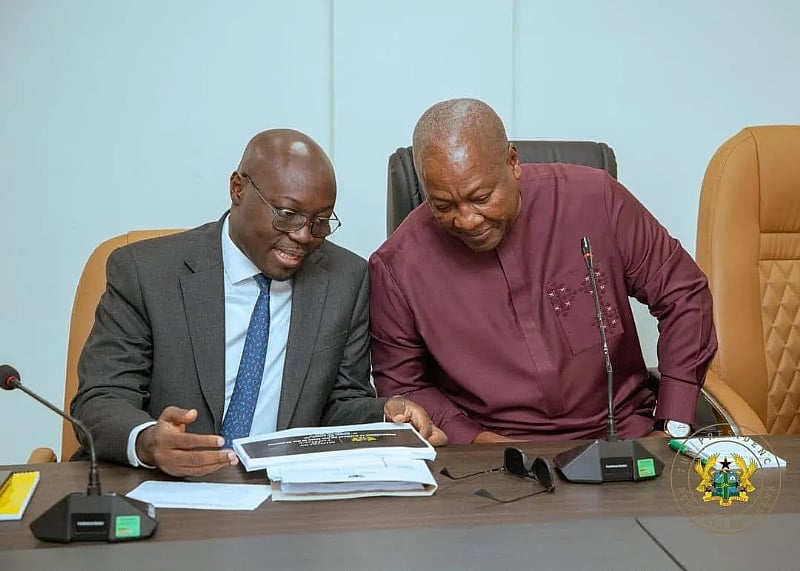Ghana’s President Mahama has handed sweeping authority to his Finance Minister, Dr. Cassiel Ato Forson, to drastically cut government expenditure in a bid to rescue the nation’s ailing economy. This move, driven by a deeper-than-expected economic crisis, underscores the urgency of the situation and the President’s commitment to fiscal consolidation. Mahama, in a meeting with Organized Labor, described the previous government’s economic management as “criminal,” leaving the nation a “crime scene” due to reckless handling of finances. This stark assessment highlights the severity of the challenges faced and the need for drastic action. The President stressed that the truth about the economy’s state must be acknowledged, despite the difficult realities it presents.
The Ghanaian economy is grappling with multiple interconnected crises: ballooning public debt, limited fiscal space, high inflation, and a depreciating currency. These factors have further been compounded by an ongoing International Monetary Fund (IMF) program, indicating the depth of the economic woes. Faced with these challenges, the President believes aggressive expenditure cuts are unavoidable. He presented two stark options: adopt an ostrich-like approach and ignore the looming crisis, allowing the economy to crash, or implement painful but necessary austerity measures. He chose the latter, emphasizing the need for shared sacrifice across all sectors, including within the government itself. This unwavering stance underscores the seriousness of the situation and the government’s resolve to address it head-on.
The decision to grant the Finance Minister unprecedented authority to cut spending is a double-edged sword. On one hand, it offers the potential for significant benefits. Strict budgetary controls can eliminate wasteful spending, ensuring that limited resources are channeled effectively towards essential services and economic stabilization efforts. This move also aligns with growing public demands for accountability and transparency in government spending. By demonstrating fiscal discipline, the government aims to restore public confidence in its financial management capabilities. Furthermore, reduced spending can help curb excessive borrowing, shrink the fiscal deficit, and ultimately pave the way for sustainable economic growth and a potential return to international credit markets.
However, the potential short-term consequences of drastic spending cuts cannot be overlooked. Delays in crucial infrastructure projects are likely, potentially hindering long-term development goals. Businesses heavily reliant on government contracts may face significant challenges, leading to potential job losses and economic disruption. The broader population may also experience temporary economic hardships as austerity measures take hold, before any long-term benefits materialize. This delicate balancing act between short-term pain and long-term gain requires careful management and communication to ensure public understanding and support.
The Finance Minister, Dr. Cassiel Ato Forson, now holds significant power and responsibility. The nation will closely watch his decisions and actions as he wields this newly granted authority. He must navigate the complexities of the Ghanaian economy, balancing the need for immediate fiscal consolidation with the long-term development goals of the nation. His success in effectively utilizing these powers will play a crucial role in determining whether Ghana can successfully navigate its current economic crisis and emerge stronger and more resilient.
The magnitude of the task ahead is undeniable. Dr. Forson must identify areas of wasteful spending, prioritize essential services, and implement cuts strategically to minimize negative impacts. He must also communicate effectively with the public, explaining the rationale behind the difficult decisions being made and ensuring transparency in the process. The challenge lies not just in cutting expenditure, but in doing so in a manner that lays the foundation for sustainable economic recovery and future prosperity. The nation’s hopes rest on his ability to steer the economy towards stability and growth.


